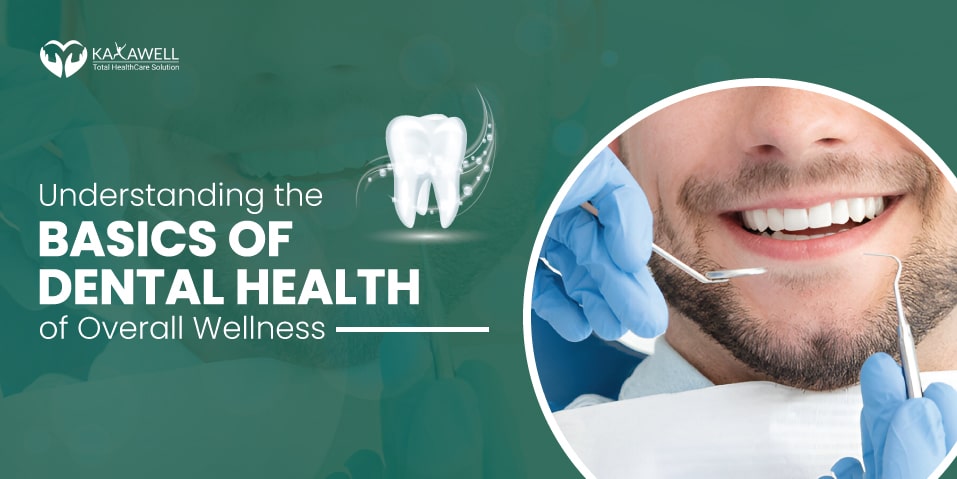Dental health is a vital component of overall wellness that often goes overlooked. The condition of one’s teeth and gums can significantly influence various aspects of physical health, mental well-being, and social interaction.
This article delves into why dental health is paramount and how it interconnects with the broader spectrum of human health.
Understanding the Basics of Dental Health
Dental health encompasses the care and maintenance of the mouth, teeth, gums, and related tissues. Good dental hygiene practices, such as brushing twice daily, flossing daily, and regular dental check-ups, are essential to prevent common dental problems such as cavities, gum disease, and halitosis (bad breath).
Advancements in dental technology have made remarkable strides in providing solutions that solve functional issues and enhance aesthetic appeal. For example, options like the realest-looking dentures allow individuals to regain their natural smile and improve oral functionality significantly.
The Link Between Dental Health and Physical Health
The connection between dental health and physical health is profound and multifaceted. Poor oral hygiene can lead to conditions affecting the heart, lungs, and metabolic systems, highlighting the importance of maintaining a healthy mouth to promote overall physical wellness. Here’s how dental health can directly impact various bodily functions and the systemic consequences of oral diseases.
Heart Disease
It is believed that there is a correlation between oral health and heart disease. The bacteria responsible for periodontal disease can enter the bloodstream and travel to the arteries in the heart, contributing to atherosclerosis. This buildup of plaque on the inner walls of the arteries can lead to an increased risk of heart attack or stroke. Therefore, maintaining good oral hygiene can help reduce the risk of heart disease.
Diabetes
Individuals with diabetes are more susceptible to periodontal disease, which in turn can exacerbate diabetes complications. Inflammation of gum tissue and periodontal infections can hinder the body’s ability to utilize insulin, making diabetes management more challenging. Effective dental care is crucial for managing and mitigating these effects.
Respiratory Issues
Poor oral health is a significant risk factor for various respiratory conditions. Bacteria thriving in an unhealthy mouth can easily be inhaled into the lungs, particularly during sleep or due to poor swallowing reflexes. This migration can cause bacterial infections in the respiratory tract, leading to conditions like pneumonia and bronchitis.
Additionally, these oral pathogens can enter the bloodstream and reach the lungs, potentially exacerbating or initiating chronic respiratory diseases such as chronic obstructive pulmonary disease (COPD). These make diligent oral care crucial for lung health.
Mental Health and Quality of Life
Dental health can significantly influence mental health and overall quality of life. A healthy smile can enhance self-esteem and facilitate social interactions, whereas dental issues can lead to anxiety, depression, and social isolation. Below are the psychological impacts of oral health:
Confidence and Social Interaction
A well-aligned smile not only enhances confidence but also contributes to better oral health. Invisalign treatment offers a discreet and effective way to straighten teeth, helping individuals feel more comfortable in social interactions while improving long-term dental health.
Impact on Mental Health
Chronic oral pain, significant tooth loss, and other oral health issues can lead to mood instability, stress, and even more severe
such as depression and anxiety. Maintaining good oral health can help mitigate these issues and support overall mental well-being.
Nutritional Implications
The ability to chew food properly affects the nutrition one can derive from food. Dental problems can restrict the types of food one can eat, potentially leading to nutritional deficiencies. Healthy teeth and gums enable individuals to eat a balanced diet that supports all body systems.
Preventive Measures and Regular Dental Care
Preventive measures and regular dental care are essential strategies for safeguarding oral health and, by extension, overall health. The following are some practices that preserve dental health and prevent conditions that can impact the body’s broader health systems:
Regular Check-Ups
Regular dental check-ups allow dentists to detect early signs of oral diseases and take appropriate action. These visits are crucial for cleaning and maintenance and for assessing potential problems that may affect overall health.
Professional Cleanings
Professional cleanings remove plaque and tartar that regular brushing and flossing cannot. They help prevent the development of cavities and gum disease and also allow dentists to offer guidance on proper oral hygiene practices.
Education on Dental Hygiene
Educational efforts by healthcare providers on the importance of dental hygiene play a significant role in enhancing public health. Awareness campaigns and community programs can teach individuals about the importance of oral care and how it relates to overall wellness.
Conclusion
With the information mentioned above in mind, dental health is intricately linked to overall wellness. Issues within the mouth can have far-reaching consequences, affecting cardiovascular health, respiratory function, and mental health. Thus, maintaining optimal oral health through regular dental care, adopting proper hygiene practices, and leveraging advancements in dental technology, such as highly realistic dentures, is crucial for sustaining overall health and enhancing quality of life.
